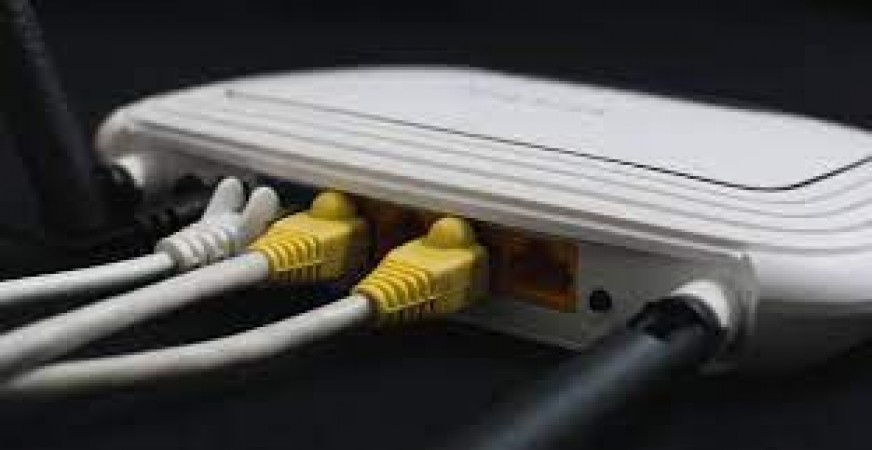
In today's fast-paced digital age, most of us rely heavily on our WiFi connections. Whether it's for work, entertainment, or simply staying connected, WiFi has become an indispensable part of our lives. However, there's a common habit that many people overlook: leaving their WiFi on overnight. While it might seem convenient, there are several reasons why doing so can cause a range of problems.
Leaving your WiFi router on throughout the night can lead to a significant increase in energy consumption. While routers are not as power-hungry as some other electronic devices, they still consume electricity. Over time, this can contribute to higher energy bills and a larger carbon footprint.
Routers, like all electronic devices, have a limited lifespan. When you leave your WiFi on constantly, it puts unnecessary strain on the router's components, particularly the power supply and cooling system. This can lead to a shorter lifespan for your router, resulting in the need for more frequent replacements.
Continuous operation of your WiFi router can cause it to overheat. When a router overheats, its performance can suffer, leading to slower internet speeds and a less reliable connection. In extreme cases, overheating can even damage the router's internal components.
Leaving your WiFi on overnight can expose your network to potential security risks. While modern routers have built-in security features, they are not immune to cyber threats. When your WiFi is on, it's susceptible to hacking attempts and unauthorized access, especially if you haven't implemented robust security measures.
Did you know that the WiFi signals emitted by your router can interfere with your sleep? Research suggests that exposure to WiFi radiation during the night can disrupt sleep patterns and even affect the quality of your rest. To ensure a good night's sleep, it's advisable to turn off your WiFi before bedtime.
Leaving your WiFi on overnight can contribute to network congestion, especially if you live in an area with many WiFi networks in close proximity. This congestion can lead to slower internet speeds and a less stable connection, which can be frustrating for users trying to access the internet.
Electromagnetic fields (EMFs) are emitted by WiFi routers, and prolonged exposure to EMFs can have potential health implications. While the scientific community is still studying the long-term effects of EMF exposure, it's a good practice to minimize your exposure by turning off your WiFi when it's not in use.
One of the most compelling reasons to turn off your WiFi at night is the potential for energy savings. By adopting this simple habit, you can reduce your electricity consumption, lower your utility bills, and decrease your carbon footprint. It's a small step towards a more sustainable lifestyle.
To maximize the lifespan of your router, it's essential to allow it to cool down and rest periodically. Turning off your WiFi overnight gives your router the opportunity to cool off, reducing wear and tear on its internal components and potentially extending its lifespan.
Enhancing your network security is crucial in today's interconnected world. Turning off your WiFi when not in use adds an extra layer of protection by reducing the window of vulnerability. It's a proactive measure to safeguard your personal data and privacy.
A good night's sleep is essential for overall well-being. By turning off your WiFi before bedtime, you can create a more conducive sleep environment, free from potential electromagnetic interference. This can lead to improved sleep quality and overall health.
Reducing network congestion by turning off your WiFi at night can lead to better internet performance during the day. With fewer devices competing for bandwidth, you can enjoy faster internet speeds and a more reliable connection when you need it most.
While the health effects of EMF exposure are still a subject of debate, minimizing your exposure is a prudent choice. Turning off your WiFi at night reduces your exposure to WiFi-related EMFs, which may contribute to peace of mind and a sense of well-being.
Incorporating the habit of turning off your WiFi at night can be part of a broader effort to establish a healthy daily routine. It encourages mindfulness about technology usage and promotes a balanced lifestyle.
Turning off your WiFi is a straightforward process. Most routers have a power button or a scheduling feature that allows you to automate the process. It's a small effort that can yield significant benefits.
If you're concerned about forgetting to turn off your WiFi at night, consider setting a timer or using a smart plug with scheduling capabilities. These tools can make the process seamless and hassle-free.
Make sure your family members are aware of the benefits of turning off the WiFi at night. Encourage them to adopt this practice as well, creating a collective effort to reduce energy consumption and enhance security.
Track your energy savings after implementing the habit of turning off your WiFi at night. You might be surprised by the positive impact on your electricity bills.
Consider exploring alternative connectivity options, such as using a wired Ethernet connection for devices that don't require WiFi overnight. This can further reduce your energy consumption and potential security risks.
Ultimately, the decision to turn off your WiFi at night is about prioritizing your health and well-being. It's a simple yet effective way to create a safer and more energy-efficient home environment. In conclusion, leaving your WiFi on overnight may seem convenient, but it can lead to increased energy consumption, security risks, and potential health concerns. By adopting the habit of turning off your WiFi when not in use, you can save energy, extend your router's lifespan, enhance network security, and improve your overall quality of life.
This model of iPhone became cheaper by Rs 16,000
Clean gold in 5 ways, it will shine like new in a jiffy
Cotton ryot problems can be solved robotically